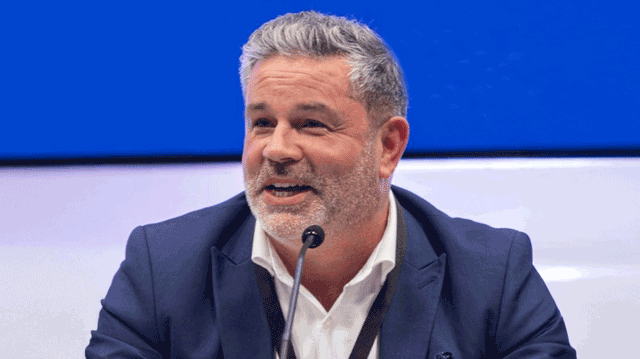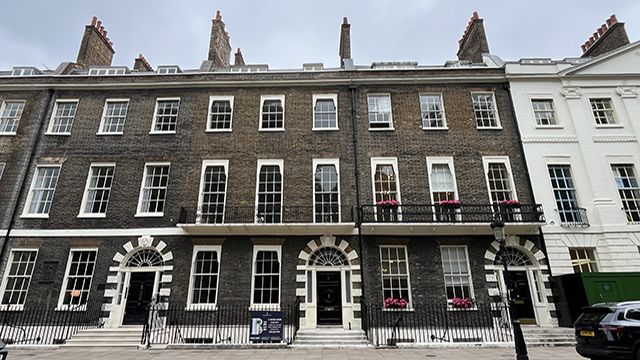IWG is exploring a sale-and-leaseback of its real estate in order to extract value from the company after interested parties failed to register a formal bid for it.
IWG’s management informed Starwood, Terra Firma and TDR that it did not want to continue discussions regarding their possible offers a day before their formal “put up or shut up” deadline was due to expire on 7 August.
It is understood that management of the Regus owner had been looking to extract bids of around 335p per share for the company, but no party was able to get to the demanded level.
The company’s shares had hovered around the 300p mark since interest in the company became public in mid-May but slumped by 23% on the news that talks were halted, pushing the price down to close to 230p.
Disposals considered
The company owns £150m of freehold assets, all of which sit in the UK, and which the firm is now considering disposing of in order to free up cash to invest in its operational business.
“We are looking at that as one of several ways of realising value. It is relatively small in the overall context of what we have but it is still potential cash,” said Mark Dixon, founder and chief executive of the company.
Dixon, who still owns around a quarter of IWG, said the decision not to proceed with any of the parties to a conclusion was not an emotional one nor one that had been taken lightly.
“The board considered things carefully but decided enough was enough as this has been going on for some time. Going through this process with PE investors, we got to understand how they could look to uncover a lot of value.
“We have a platform that is the market leader in most countries and affords a lot of opportunity to partner with new landlords and investors throughout. It’s not just about looking at our cash flow.
“There is a lot of noise around WeWork and there are a lot of transactions going on with high valuations across different countries as a result.
Why is private equity going nuts for IWG?
“The right deal hasn’t been offered, it’s as simple as that. It is not that I or anyone else has an emotional attachment. This is a professionally run company that has taken top-level advice.
“One of the problems we have is our shares are undervalued because investors have difficulty understanding the growth costs.”
IWG reported its interim results at the same time as its update on takeover talks and saw its operating profit reduce by 31% for the first half of the year, although its revenue rose by 2.9% to £1.2bn.
Dixon said this was inevitable as the company sought to invest further in the business in new locations, increasing capex and overheads.
“We have had so-called profit warnings but that’s because we are growing, not because we are trading worse than we have been.
“It is like throwing an anchor off the back of your boat or like Vodafone was when it was investing in new antennae across different countries and bought out competitors but ended up creating a global platform for people to use mobile phones, and that was painful at the beginning.
“We do need to do a better job at making that clear and showing that our underlying cash production is very good and our debt level is low at only 1.1x EBITDA.”
Getting ruthless
The company is expected to be more “ruthless” with its portfolio, particularly in the UK where it plans to invest more in properties it sees as worth persevering with and to shut those that are less successful.
“In the UK we are refurbishing the older centres that are performing OK and shutting down the older centres that aren’t, while adding a lot more building,” said Dixon. “The UK has been through the worst and a lot of the time the reason there has not been a full recovery is that we have taken them offline to refurbish them but have still had the cost.”
Over the past few weeks it is understood that Starwood came closest to making a competitive offer. The company is run by founder, chairman and chief executive Barry Sternlicht, who is considered one of the greatest branding minds in the real estate business, having been behind the likes of hotel brands W and St Regis.
Were Starwood to have purchased IWG it was expected that Sternlicht would have played a leading role in trying to bring IWG’s Regus and Spaces brands up to the same level of recognisability as that of rival WeWork and that the private equity firm would have poured in vast amounts of capital in order to do so.
This capex was due to be raised in part through the raising of a special-purpose fund that would have bought its real estate through a sale-and-leaseback.
Brookfield Asset Management and Onex Corp made an initial play for IWG in January but ultimately decided not to make a bid at the start of February. Hypothetically, they could come back into play now if they so wished because the six-month takeover panel restrictions preventing them making another bid so soon have now expired.
Lone Star, which had initially been part of the clutch of interested parties that emerged in mid May, announced on 4 June that it had no intention of making an offer. It could come back in play from December.
Similarly, Prime Opportunities Investment withdrew in July but could come back from January. Terra Firma, TDR and Starwood will now have to wait until February, but only a drop in the share price is likely to conjure a firm bid from any of them.











